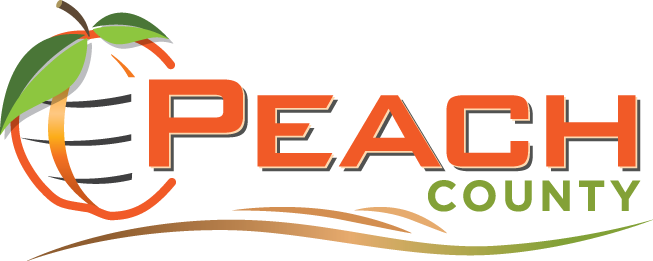Georgia’s FY 2020 Budget: Majority of New Spending Dedicated to $530 Million Teacher Pay Raise
May 10, 2019
Georgia Budget & Policy Institute - Danny Kanso

Georgia lawmakers gave final passage to the state’s $27.5 billion budget for the 2020 fiscal year, beginning July 1, 2019. Built on the state’s lowest estimate of revenue growth in a decade, the FY 2020 budget projects a conservative 3.2 percent increase in tax and fee collections above the previous fiscal year.
The vast majority of new funding over the $26.9 billion amended FY 2019 budget is dedicated to financing a $3,000 pay increase for all certified teachers and public school personnel. HB 31 also provides for a 2 percent pay raise for bus drivers, cafeteria staff and school nurses. In total, the educator pay raise championed by Gov. Kemp will cost the state $530 million in FY 2020. The budget also includes $133 million for K-12 enrollment growth, $48 million for charter system grants and State Commission Charter school supplements and $77 million for charter school equalization.
The next greatest area of growth is in Georgia’s Medicaid program, which also saw significant funding changes from the governor’s proposed budget. To draw down nearly $248 million in additional federal funding for Georgia’s Aged, Blind, and Disabled and low-income Medicaid programs, Gov. Kemp proposed increasing state appropriations by $89 million, calling for a total of $337 million in new funding. However, legislators ultimately agreed to a lower projected rate of growth that will generate a combined $171 million in state and federal funding for FY 2020.
Throughout the budget process, House and Senate negotiators worked to add each chamber’s priorities to the state’s overall spending plan for fiscal year 2020. Outside of keeping up with core functions of state government and increasing teacher pay, members of the General Assembly made additional investments in K-12 education, higher education, health, rural communities and transportation.
Notable funding changes include:
Education:
- $530 million to increase the state base salary schedule to provide a $3,000 pay raise for certified teachers and certified employees effective July 1, 2019
- $16.5 million in lottery funds to increase the salaries of certified Pre-Kindergarten teachers by $3,000 and assistant teachers by 2 percent
- $3.7 million to provide 2 percent and merit-based pay increases to state employees across the Department of Education
- $2 million combined with $1.5 million in existing funds to increase funds for facilities grants of up to $100,000 each for charter schools
- $1 million for Sparsity Grants for systems experiencing enrollment decline and to produce a plan to update the Sparsity Grant formula in fiscal year 2021
- $1 million for additional high school counselors and programs for Title I schools
- $200,000 to expand the comprehensive Communities in Schools model of wraparound supports
- $100,000 for a two-year pilot to evaluate early reading programs for students with risk factors for dyslexia as prescribed by Senate Bill 48
Health:
- $107 million in combined state and federal funds for growth in Georgia’s Low-Income Medicaid program based on projected need. A $35 million increase in general funds will be matched by $72 million in federal funding under the state’s 67.3 percent Federal Medical Assistance Percentage (FMAP). Gov. Kemp’s FY 2020 budget originally proposed drawing down $185 million from the federal government with $58 million in state funding.
- $64 million in combined state and federal funds for growth in the state’s Aged, Blind, and Disabled Medicaid program based on projected need. The state will expend an additional $21 million to draw down $43 million in federal funding. Gov. Kemp’s budget proposed adding $31 million for program growth to draw down $63 million in federal dollars.
- $7.6 million to grow the state’s behavioral health crisis bed capacity
- $5 million for Morehouse School of Medicine to offset a reduction in federal matching funds for graduate medical education and $500,000 for a Center of Excellence on Maternal Mortality at the school
- $1 million to screen, refer and treat maternal depression in rural and underserved areas
- $250,000 to fund a new grant program for hospital upgrades in rural counties with populations below 35,000 residents
- $250,000 to increase funds for Mercy Care Health Systems to provide mental and primary health care services to the uninsured
- $50,000 to expand comprehensive treatment, prevention, and recovery support services for pregnant and postpartum women with substance use disorder
Higher Education:
- $376 million in bonds for the University System of Georgia and Technical College System of Georgia
- $88 million for the University System of Georgia and $3.5 million for the Technical College System of Georgia to fund enrollment growth, facilities costs and Teachers Retirement System obligations
- $15 million in lottery funds to raise the award amount for HOPE Scholarships in public colleges by 3 percent and to meet increased demand
- $3 million in lottery funds to increase the award amount for Zell Miller Scholarships in private colleges to $2,808 from $2,308
- $3 million decrease in state general funds for Dual Enrollment and $1,000,000 addition in lottery funds (Early HOPE program)
- $1.8 million for the Augusta University/University of Georgia Medical Partnership Expansion by increasing its annual class size from 40 to 60 students.
- $349,000 for three Aviation Maintenance Technician program instructors
- $545,000 in additional funding for the Georgia Public Libraries Service to lift the materials grant back to the pre-recession level of $0.35 per capita
- $250,000 to increase funds for the Manufacturing Extension Partnership at Georgia Tech with the Georgia Consortium for Advanced Technical Training (GA CATT) apprenticeship program
Human Services:
- $2.7 million to increase funds for the Division of Family and Children Services (DFCS) relative caregiver daily per diem by $1.00
- $1.9 million to establish the Georgia Data Analytic Center that will be charged with developing an Integrated Data System to improve evidence-based policy making as prescribed by HB 197
- $500,000 to increase program funding for the Childcare and Parent Services (CAPS) program that assists low-income families in affording the cost of childcare
- $390,000 to the Criminal Justice Coordinating Council to provide state funding for one additional domestic violence shelter and six additional sexual assault centers
- $300,000 to develop a facilities grant program for local arts organizations
Rural Georgia:
- $2 million in funding for the Georgia Broadband Deployment Initiative
- $1.5 million for the Census to be utilized by the state Complete Count Committee (CCC) to conduct outreach to hard-to-count areas
- $1.3 million in bond funding for facility to repairs at farmers markets statewide
- $1.1 millon for airport infrastructure aid
- $600,000 to increase funds for three satellite perinatal support sites in Jenkins, Randolph, and Wilcox counties
- $150,000 for grant funding to local visitor information centers in rural areas









